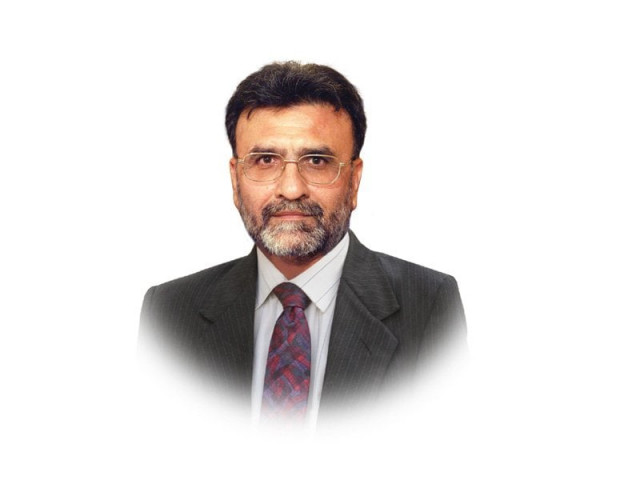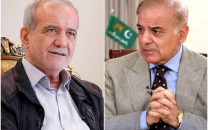Welcome back to the world of cloaks and daggers
Nawaz still prefers to set a revamped system for accountability with full involvement of both houses of parliament.

Nusrat Javeed
Once the finance minister presents his budgetary proposals in the House, the opposition leader in the National Assembly is giventhe privilege of initiating general debate on the proposals. No other member should prevent or delay the process by raising disruptive points of (dis)order.
Shah Mehmood Qureshi is not a novice to this custom. As the finance minister of the Punjab government in the early 1990s, he has rather been deftly handling discussions on his budgetary proposals. Yet the same Qureshi surprised the press gallery on Saturday by aggressively taking the floor at the outset to push Ishaq Dar in a defensive corner by his taunts and shouting.
Without seeking parliamentary approval, the third Nawaz government has already enforced one per cent increase in General Sales Tax in its maiden budget. Even the Supreme Court had taken stern notice of it. Before coming to the House, Dar had done his homework, though. He kept on flaunting a law, which successive governments habitually abused to introduce “provisional taxes.” Being a veteran of parliamentary debates, the finance minister also acted smart by repeatedly admitting that the said legislation in essence was a “bad law.” His government would love to change it, if the opposition also desired that. Qureshi did not call his bluff by instantly switching to demand a firm pledge from the government to scrap the said law. He preferred to keep scoring points with bombastic words and then walked out of the house.
The government was not pushed over by the PTI walkout. Hardly a minister cared to rush after Qureshi to bring the PTI legislators back. The speaker felt embarrassed over this show of arrogance on the part the government benches and had to ask the ministers to make some reconciliatory moves. Rana Tanvir went out with three second-tier legislators from the PML-N.
Dr Shireen Mazari took command of her comrades huddled in the lobby, and continued to stonewall the government’s pleas. Eventually, Syed Khursheed Shah went out in spite of being the opposition leader. He might have failed as well, but former speaker, Dr Fehmida Mirza, showed grace by personally going out to calm and appease the PTI crowd.
Delivering his maiden speech as the opposition leader, Khurshid Shah did not pretend to sound like a profound economist and preferred lambasting the budgetary proposals in a layman’s lingo and logic. Often, he stirred loud and long spells of giggles by rubbing points with rustic humor and street hardened wisdom.
Ministers, known for being close to Nawaz Sharif, were looking tense and agitated, though. They were feeling uneasy in the formative days of the government and the one and only cause of their anxiety remains the hyperactive judiciary. Besides censuring the government for enforcing the one percent increase in GST, the Supreme Court has also conveyed its discomfort over the high-profile role that Shaukat Tareen seems to be relishing these days.
Nawaz wants the highly acclaimed banker, who also had served the PPP government as its finance minister, to assist him, formally, in finding answers to core issues like power shortage and revamping of the national flag carrier. But the Supreme Court needs Tareen to tell nothing but the whole truth to the NAB accountability boys, assigned to probe into the explosive scandal of rental power projects.
That is just the beginning. I have it from highly reliable sources that the usual clique of elements from within the ‘deep state’ has worked upon some corruption-hating media persons to start howling for “ruthless accountability.” The idea is to get some known cronies of Asif Ali Zardari and make them uncover the evil doings of their patron.
Nawaz still prefers to set a revamped system and institution for accountability with full involvement of both houses of parliament. Until the passage of a comprehensive anti-corruption law, preferably with consensus between the government and the opposition, he does not even want to appoint any acting or new chairman of the NAB. The “corrupting-hounding” cliques within media and the deep state do not approve of this cautious conduct of Nawaz. Already, they have short-listed two names to get to the “corrupt politicians.” Apparently, the prime minister is being pressurised to appoint either of them as the accountability czar to kickstart the cleansing process on a fast track. Welcome to the mutually destructive games that politicians continue to play.
Published in The Express Tribune, June 16th, 2013.



















COMMENTS
Comments are moderated and generally will be posted if they are on-topic and not abusive.
For more information, please see our Comments FAQ